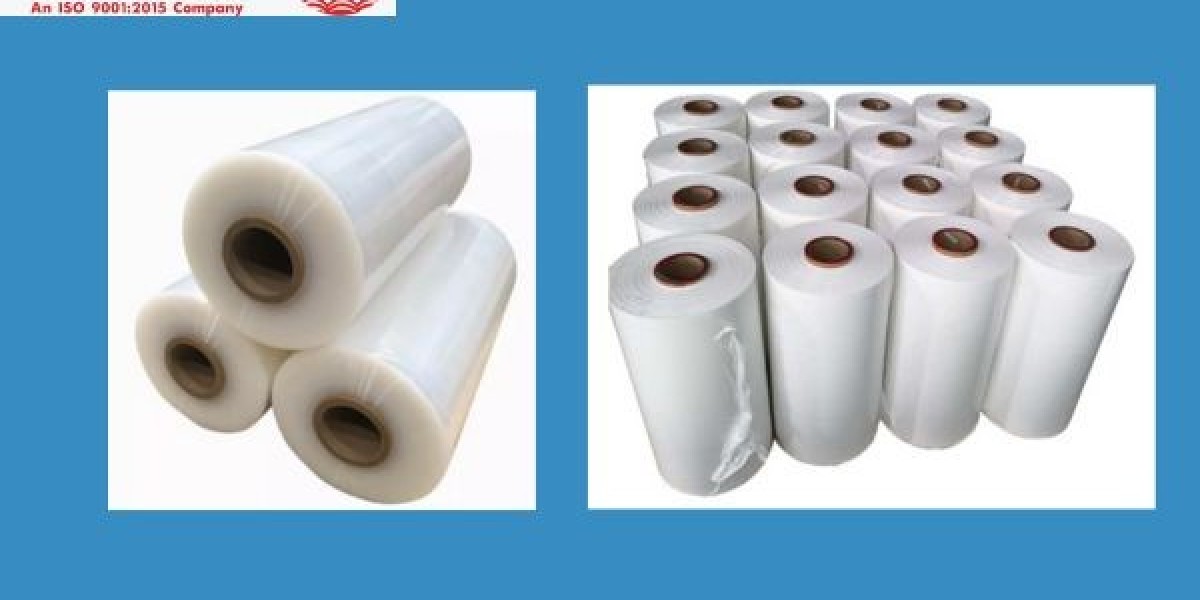Polyethylene (PE) film has become one of the most widely used materials in various industries due to its versatility, durability, and cost-effectiveness. Used primarily for packaging and protective applications, PE film is essential for a range of industrial uses. Its applications span from packaging consumer goods to protecting industrial products during transportation, providing a flexible and reliable solution for many businesses. As a leading material in the packaging industry, PE Film Material continues to evolve to meet the demands of industries looking for lightweight, protective, and sustainable packaging options.
What is PE Film?
PE film is a thin sheet of material made from polyethylene, a type of plastic polymer. Polyethylene is one of the most common plastics used globally, offering a wide range of variations in terms of density, thickness, and flexibility. PE films can be produced in different grades, such as low-density polyethylene (LDPE), high-density polyethylene (HDPE), and linear low-density polyethylene (LLDPE), each of which has distinct properties suited to specific industrial applications.
LDPE (Low-Density Polyethylene): Known for its flexibility and softness, LDPE is commonly used in packaging materials, including plastic bags, shrink wraps, and liners.
HDPE (High-Density Polyethylene): Characterized by higher tensile strength and rigidity, HDPE is often used for applications like heavy-duty industrial films and plastic bottles.
LLDPE (Linear Low-Density Polyethylene): A variation that combines the flexibility of LDPE with the strength of HDPE, LLDPE is often used in stretch films and agricultural coverings.
The ability to tailor the properties of PE film based on its density and additives makes it highly adaptable for industrial use.
Applications of PE Film in Industry
PE film is widely utilized across various sectors due to its numerous benefits. Some of the most common industrial applications of PE film include:
Packaging Materials: PE film is extensively used in the packaging industry, where it is transformed into various products like bags, wraps, and pouches. Its flexibility and ability to be molded into different shapes make it a go-to option for packaging both small and large products. From food packaging to consumer goods, PE film ensures product protection while maintaining cost efficiency.
Stretch Film: Stretch films made from PE are commonly used in the logistics industry for wrapping pallets and securing loads during transport. The stretchability of the film ensures that it clings tightly to products, providing stability and protection from external elements like dust, moisture, and dirt.
Agricultural Films: PE films are crucial in the agricultural sector, where they are used as greenhouse covers, mulch films, and silage wraps. Their ability to protect crops from extreme weather conditions, retain moisture, and regulate temperature helps increase agricultural productivity. PE films are also used in soil fumigation and crop protection, ensuring a healthier yield.
Protective Covers: PE films serve as protective covers for various industrial products, including machinery, equipment, and construction materials. These films help shield products from environmental factors, such as dust, dirt, and moisture, while also providing additional protection during handling and transportation.
Building and Construction: In the construction industry, PE films are used for moisture barriers, vapor barriers, and insulation. They are commonly applied in roofing, flooring, and wall installations, as well as in foundation waterproofing. Their ability to withstand wear and moisture exposure makes them a reliable option for construction projects.
Medical and Hygiene Products: PE film is also used in the production of medical and hygiene products, including disposable gloves, surgical drapes, and hygiene liners. The material’s non-reactive nature and easy sterilization properties make it an excellent choice for these applications.
Retail and Consumer Goods: PE films are often found in retail packaging for consumer goods like electronics, toys, and household items. Their clear, durable properties provide visual appeal while ensuring that products are well-protected.
Advantages of PE Film in Industrial Applications
Cost-Effective: One of the primary reasons for the widespread use of PE film in industrial applications is its cost-effectiveness. It is relatively inexpensive to produce, which helps businesses reduce packaging costs without compromising quality or performance.
Durability: PE film offers excellent durability, making it ideal for protecting products from external elements like moisture, dirt, and dust. Its resistance to tearing and puncturing ensures that it can withstand the rigors of transportation and storage.
Lightweight: Despite its strength, PE film is lightweight, which makes it easier to handle, transport, and store. This helps reduce overall shipping costs, as less weight is added to the packaged products.
Versatility: PE film can be customized in terms of thickness, flexibility, and transparency, making it suitable for a wide range of applications. Whether used for wrapping, sealing, or insulating, PE film adapts to meet the specific needs of various industries.
Environmental Benefits: Modern advancements in PE film production have led to the development of recyclable and biodegradable variants, which offer significant environmental benefits. As sustainability becomes increasingly important in industrial practices, PE film manufacturers are introducing more eco-friendly solutions to meet the demand for sustainable packaging.
Barrier Properties: PE films provide excellent moisture and chemical resistance, which makes them ideal for protecting sensitive products, such as food, pharmaceuticals, and chemicals. Their ability to act as a barrier against contaminants ensures product integrity throughout storage and transport.
Ease of Customization: PE films can be easily printed with logos, branding, and product information, making them an ideal choice for businesses looking to promote their products while maintaining functionality. Customization options further enhance the appeal of PE film in packaging applications.
PE Film Suppliers: A Vital Component of the Industry
As demand for PE film continues to grow, the role of reliable PE film suppliers becomes increasingly critical. These suppliers play a key role in ensuring that industries have access to high-quality films that meet their specific requirements. A reputable PE Film Supplier can provide a range of solutions, including custom-made films, various thickness options, and specialized films for different industries.
When selecting a PE film supplier, companies should consider factors such as:
- Product Quality: Ensure that the supplier offers high-quality PE film with appropriate certifications and compliance standards.
- Customization Options: Look for suppliers who can tailor the film according to the specific needs of the business, whether it be for food-grade packaging, moisture protection, or UV resistance.
- Reliability and Timeliness: A good supplier should be able to deliver products on time and meet the demands of the industry.
- Sustainability Initiatives: Many industries are now focused on eco-friendly solutions, so partnering with a supplier who offers recyclable or biodegradable PE film can help businesses meet their sustainability goals.
Conclusion
PE film has become an essential material for industrial packaging and protective applications due to its versatility, durability, and cost-effectiveness. From agriculture to construction, logistics, and retail, PE Film For Industrial Use is a reliable solution for companies across various industries. Its ability to be customized for specific applications, combined with its barrier properties and environmental benefits, makes it a preferred choice for many businesses. As industries continue to seek out efficient, sustainable, and economical packaging options, the demand for PE film and trusted suppliers will only continue to grow.
Frequently Asked Questions
What industries use PE film?
What are the advantages of using PE film?



